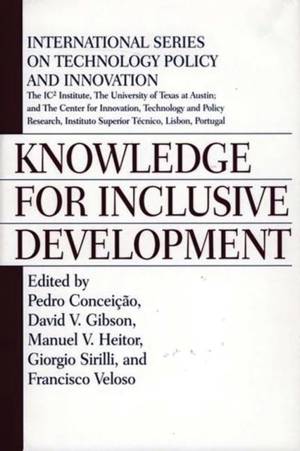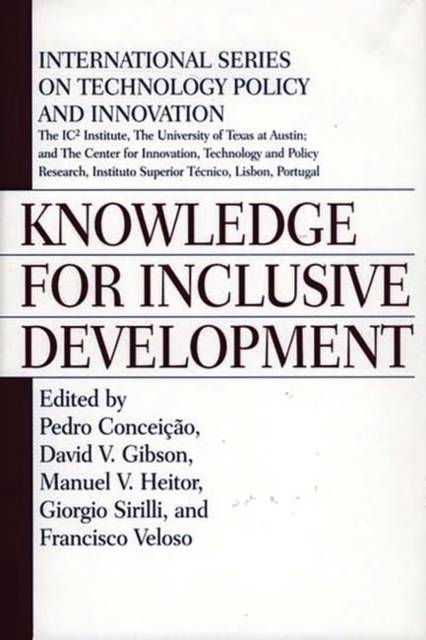
- Retrait gratuit dans votre magasin Club
- 7.000.000 titres dans notre catalogue
- Payer en toute sécurité
- Toujours un magasin près de chez vous
- Retrait gratuit dans votre magasin Club
- 7.000.000 titres dans notre catalogue
- Payer en toute sécurité
- Toujours un magasin près de chez vous
Knowledge for Inclusive Development
103,45 €
+ 206 points
Description
The essays in this book examine the role of education and the university in economic development. It is the contention of the contributors that knowledge--ideas and skilled and educated people--are increasingly important for economic development. How to promote inclusive development--the process of development that includes every citizen in any country--has become a wide-ranging puzzle.
After framing the problems associated with globally integrated learning processes from the perspective of science and technology policies, the essayists look at the role of the university in the knowledge economy drawing examples from the United States, Japan, and Portugal. They then review the role of innovation in the industrial policies of a variety of countries, look at systems of knowledge creation and diffusion, and conclude with commentary on the roles of public planning and policy in the achievement of sustainable development. This wide-ranging examination of knowledge and development issues will be of value to scholars, researchers, and policy makers involved with economic growth and development.Spécifications
Parties prenantes
- Editeur:
Contenu
- Nombre de pages :
- 502
- Langue:
- Anglais
- Collection :
Caractéristiques
- EAN:
- 9781567204445
- Date de parution :
- 30-06-02
- Format:
- Livre relié
- Format numérique:
- Genaaid
- Dimensions :
- 163 mm x 235 mm
- Poids :
- 816 g






